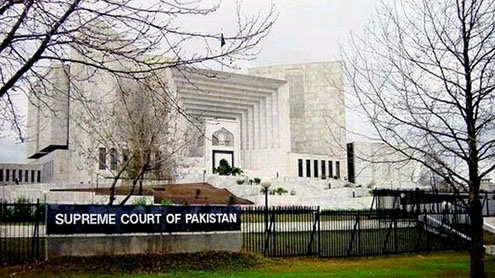
The Supreme Court (SC) in its detailed judgement on Yousaf Raza Gilani’s contempt of court case has enunciated a ‘new’ political theory that the constitution is supreme, even over parliament.
This theory has been reiterated by Chief Justice of Pakistan (CJP) Iftikhar Mohammad Chaudhry while addressing a ceremony in Karachi. The theory rests on the notion that the concept of parliament’s supremacy is ‘outdated’. The CJP has gone so far as to claim that even the highest court in the UK has declared that the idea of parliament’s supremacy is not in consonance with the times. Perhaps, but has that view led to the abandonment of parliament’s supremacy in the UK? The British constitution is unwritten, its polity relying on conventions that are so deeply ingrained that anyone trying to violate them suffers adverse consequences at the hands of the people. In the UK, the aphorism is often quoted that parliament can declare a woman a man and it cannot be challenged.
That light hearted explanation of the unfettered supremacy of parliament stands unchallenged in the oldest democracy in the world, as well as all other later democracies. The constitution is framed by the elected representatives of the people (parliament) and its author is empowered to amend it. Such amendments usually flow from new developments and evolution based on the experience of democratic societies. Can the author, and the institution with the inherent power to amend it, be subject or inferior to its own creation? This is standing logic on its head.
The ‘will of the people’, which the SC and the CJP are fond of quoting as something that only the superior judiciary, in its undeniable wisdom, is qualified to define, is reflected in the representatives the people send to the assemblies. There can be no two interpretations of this fact, especially not a ‘mythical’ will of the people that only the superior judiciary is privy to, and may be contradictory to the people’s political expression through democratic elections. It must not be forgotten that despite its position as the final interpreter of the constitution, the judiciary is not an elected institution. If it were to be conceded that the constitution is supreme, over and above even parliament, and given that the judiciary is the sole interpreter of that constitution, this would open the door to judicial dictation.
As to the constitution as it stands, there is considerable room for dissatisfaction with many of its features. For example, Article 63, which the SC relied on to convict Gilani, is one of the remaining hangovers of General Ziaul Haq’s amendments, which arguably distorted its character from what the original framers of the basic law intended or put down. So-called ‘Islamic’ provisions, including Articles 62 and 63 that lay down moral (religious?) criteria for the qualification and disqualification of members of parliament respectively, have led, amongst other factors, to an intolerant society relying on narrow interpretations of religious injunctions. Even the 18th Amendment was unable to do away with these Zia-added provisions because those of a mindset close to the late dictator refused to go along. A close examination of Quaid-e-Azam Mohammad Ali Jinnh’s ideas shows that the constitution as it stands, with its religious connotations, bares little resemblance to the tolerant and inclusive vision he had.
The ideas expressed in the detailed judgement of the SC in Gilani’s contempt case and the reiteration of these views by the CJP may be well intentioned, an underlining of the need to adhere to the provisions of the constitution as it stands, but they run the risk of setting up the creation over and above the creator, and opening the door to the judiciary being actually superior to all other institutions as the final arbiter of the basic law of the land.
That way lies judicial tyranny, a scary prospect at any time, but especially worrying in the present context, when the restored judiciary has been criticised for being ‘overactive’ and stepping onto the turf of the executive and parliament, two institutions of state that enjoy their own purview under the doctrine of the separation of powers in a democratic polity. The worst part is that these newfound doctrines of the superior judiciary may have less to do with high constitutional principles and more to do with the immediate state of confrontation between the government and the judiciary. Such expedient conceptualisation must be avoided in favour of solid precedent and established principles that have guided democratic polities since they emerged in human history. – Dailytimes












